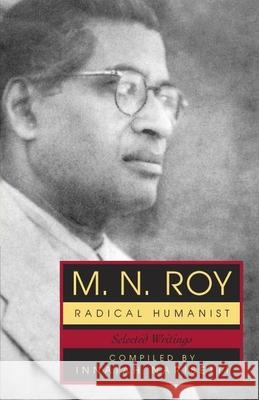M.N. Roy: Radical Humanist: Selected Writings » książka
M.N. Roy: Radical Humanist: Selected Writings
ISBN-13: 9781591021414 / Angielski / Miękka / 2004 / 209 str.
When humanism was first receiving widespread public attention in the West, through such publications as The Humanist Manifesto in 1933, unbeknownst to most Westerners humanism was proceeding on a parallel track in India, largely due to the efforts of philosopher and political activist M.N. Roy (1887-1954). Sadly, it wasn't until the early fifties, at the end of Roy's life that European humanists began to notice his work.
To rectify the unfortunate neglect in the West of one of India's premier intellectuals, philosopher Innaiah Narisetti has compiled this new collection of Roy's most significant works. Roy conceived of humanism as a scientific, integral, and radically new worldview. Among many interesting selections in this volume, Roy's "Principles of Radical Democracy: 22 Theses" is especially representative of his thinking. Here he emphasized ethics and eschewed supernatural interpretations as antithetical to his scientifically oriented conception of "new humanism." He also underscored the importance of universal education to make average people scientifically literate and to teach them critical thinking.
Roy was not only a thinker but a doer as well. He spent six years in an Indian prison during the 1930s for opposing the British rule of India.
For humanists, philosophers, political scientists, and others, M.N. Roy's unique and still very relevant view of humanism will have great appeal and broad application beyond its original Indian context.











